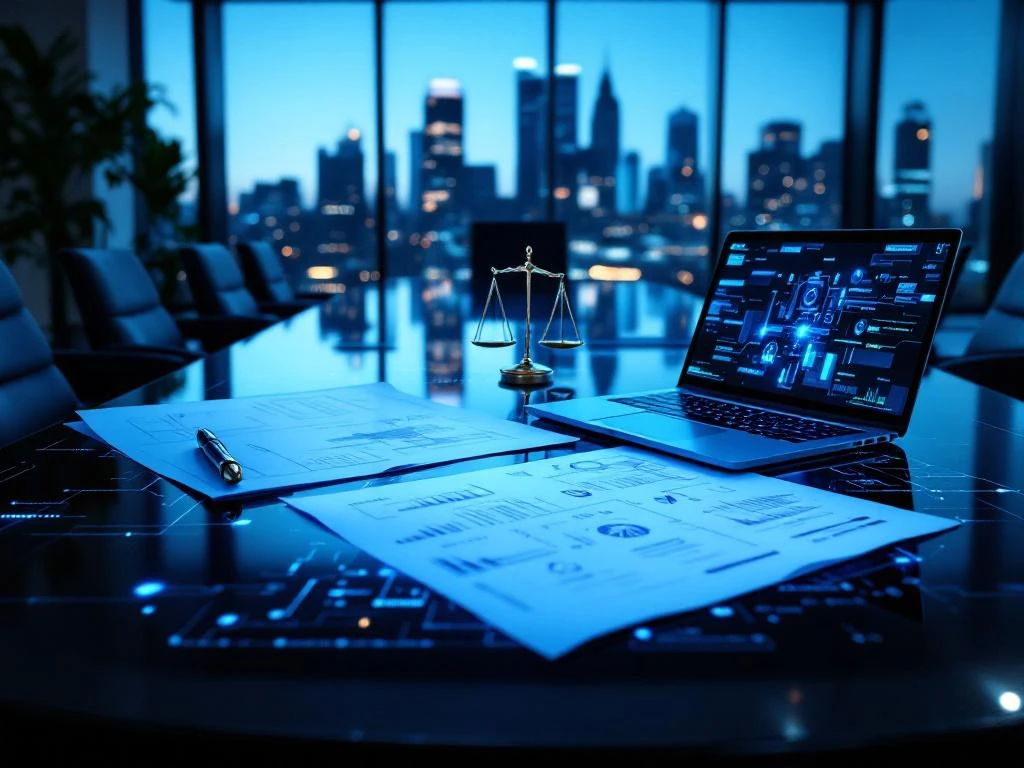

-
UK: +44 203 8876 770
US: 315 508 6500 - cybersecurity@thisisiceberg.com
-
8 Devonshire Square, London, EC2M 4YJ

When hiring legal professionals to collaborate with engineers, prioritise candidates with strong technical communication skills, basic understanding of software development processes, and experience translating complex legal concepts into actionable technical requirements. Look for professionals who demonstrate adaptability, cross-functional project management experience, and proven ability to work within agile methodologies while maintaining legal compliance and risk management standards.
Modern organisations increasingly depend on cross-functional collaboration between legal teams and engineering departments to navigate complex regulatory landscapes whilst driving innovation. This partnership becomes particularly important in cybersecurity, data privacy, and technology sectors where legal compliance directly impacts product development and system architecture.
The collaboration between legal and engineering teams delivers multiple benefits:
Legal professionals must understand technical implementations to provide relevant guidance on data protection regulations, intellectual property rights, and compliance requirements. Engineers need legal insight to build systems that meet regulatory standards from the ground up, rather than retrofitting compliance measures later.
Legal professionals collaborating with engineers should possess foundational technical literacy that enables meaningful dialogue about system architecture, data flows, and security implementations. This doesn’t require deep programming expertise, but rather understanding how technology decisions impact legal compliance.
Key technical competencies include:
These skills help legal professionals ask relevant questions during technical discussions and provide guidance that engineers can practically implement. You don’t need lawyers who can code, but rather professionals who understand the legal implications of technical choices and can communicate requirements clearly to development teams.
Reading about hiring legal professionals to work with engineering teams? Many of our clients face similar challenges building these specialized cross-functional partnerships. Which area would be most valuable for your organization right now?
Communication skills form the foundation of successful legal-engineering partnerships, as both disciplines use specialised terminology that can create barriers to understanding. Legal professionals must translate regulatory requirements into clear, actionable technical specifications whilst engineers need to explain system limitations and capabilities in terms that inform legal risk assessments.
| Communication Element | Key Requirements |
|---|---|
| Active Listening | Understanding technical constraints and business requirements |
| Documentation | Creating clear compliance guidelines with context for legal decisions |
| Facilitation | Resolving conflicts between technical feasibility and legal requirements |
Effective communication involves asking clarifying questions about implementation details and providing context for legal decisions that might seem overly cautious to engineering teams. The ability to facilitate discussions between stakeholders with different priorities helps find solutions that satisfy both domains.
Legal professionals collaborating with engineers benefit from understanding agile project management methodologies commonly used in software development. This includes familiarity with sprint planning, iterative development cycles, and how legal review processes can integrate with rapid development timelines.
Essential project management capabilities include:
Understanding how legal requirements affect different stages of development, from initial design through testing and deployment, helps legal professionals provide timely input and maintain project momentum while ensuring compliance standards.
Evaluating problem-solving compatibility requires testing how legal professionals approach technical challenges and whether their analytical thinking complements engineering methodologies. Look for candidates who demonstrate flexibility in their problem-solving approach and can adapt legal frameworks to technical realities.
Effective assessment methods include:
Strong candidates will ask probing questions about technical limitations and explore alternative approaches rather than simply stating legal requirements. Consider how they interact with technical team members and observe communication dynamics in real-time.
Effective interview questions for interdisciplinary hiring should explore both technical understanding and collaborative abilities. Focus on behavioural questions that reveal how candidates have handled similar situations in the past, rather than theoretical scenarios.
| Question Category | Sample Questions |
|---|---|
| Technical Understanding | “Describe a time when you had to understand a technical system to provide legal guidance. How did you approach learning about the technology?” |
| Communication Skills | “How would you explain data retention requirements to a software development team?” |
| Problem-Solving | “Tell me about a situation where legal requirements seemed to conflict with technical feasibility. How did you resolve it?” |
| Collaboration | “Describe your experience working with technical teams on compliance projects. What worked well and what was challenging?” |
Ask candidates to walk through their process for staying current with technology trends that affect their legal practice. Strong candidates will have established methods for continuous learning and demonstrate curiosity about technical developments.
Situational questions should test their ability to balance legal requirements with business objectives and technical constraints. Look for candidates who ask clarifying questions and consider multiple stakeholder perspectives when formulating responses.
Creating effective legal engineering teams requires careful attention to both individual skills and team dynamics. The most successful partnerships combine legal professionals who understand technology with engineers who appreciate regulatory complexities and compliance requirements.
Key strategies for building these teams include:
Legal professionals benefit from technical training that helps them understand system capabilities and limitations, whilst engineers gain from compliance training that explains the reasoning behind legal requirements.
If you’re looking to build stronger legal-engineering partnerships in your organisation, we can help you identify candidates with the right combination of technical understanding and collaborative skills to drive successful cross-functional projects. If you are interested in learning more, reach out to our team of experts today.













